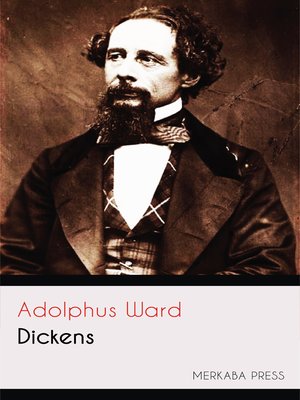
Sign up to save your library
With an OverDrive account, you can save your favorite libraries for at-a-glance information about availability. Find out more about OverDrive accounts.
Find this title in Libby, the library reading app by OverDrive.



Search for a digital library with this title
Title found at these libraries:
| Library Name | Distance |
|---|---|
| Loading... |
Charles Dickens, the eldest son, and the second of the eight children, of John and Elizabeth Dickens, was born at Landport, a suburb of Portsea, on Friday, February 7, 1812. His baptismal names were Charles John Huffham. His father, at that time a clerk in the Navy Pay Office, and employed in the Portsmouth Dock-yard, was recalled to London when his eldest son was only two years of age; and two years afterwards was transferred to Chatham, where he resided with his family from 1816 to 1821. Thus Chatham, and the more venerable city of Rochester adjoining, with their neighbourhood of chalk hills and deep green lanes and woodland and marshes, became, in the words of Dickens's biographer, the birthplace of his fancy. He looked upon himself as, to all intents and purposes, a Kentish man born and bred, and his heart was always in this particular corner of the incomparable county. Again and again, after Mr. Alfred Jingle's spasmodic eloquence had, in the very first number of Pickwick, epitomised the antiquities and comforts of Rochester, already the scene of one of the Sketches, Dickens returned to the local associations of his early childhood. It was at Chatham that poor little David Copperfield, on his solitary tramp to Dover, slept his Sunday night's sleep "near a cannon, happy in the society of the sentry's footsteps;" and in many a Christmas narrative or uncommercial etching the familiar features of town and country, of road and river, were reproduced, before in Great Expectations they suggested some of the most picturesque effects of his later art, and before in his last unfinished romance his faithful fancy once more haunted the well-known precincts. During the last thirteen years of his life he was again an inhabitant of the loved neighbourhood where, with the companions of his mirthful idleness, he had so often made holiday; where, when hope was young, he had spent his honey-moon; and whither, after his last restless wanderings, he was to return, to seek such repose as he would allow himself, and to die. But, of course, the daily life of the "very queer small boy" of that early time is only quite incidentally to be associated with the grand gentleman's house on Gad's Hill, where his father, little thinking that his son was to act over again the story of Warren Hastings and Daylesford, had told him he might some day come to live, if he were to be very persevering, and to work hard. The family abode was in Ordnance (not St. Mary's) Place, at Chatham, amidst...







